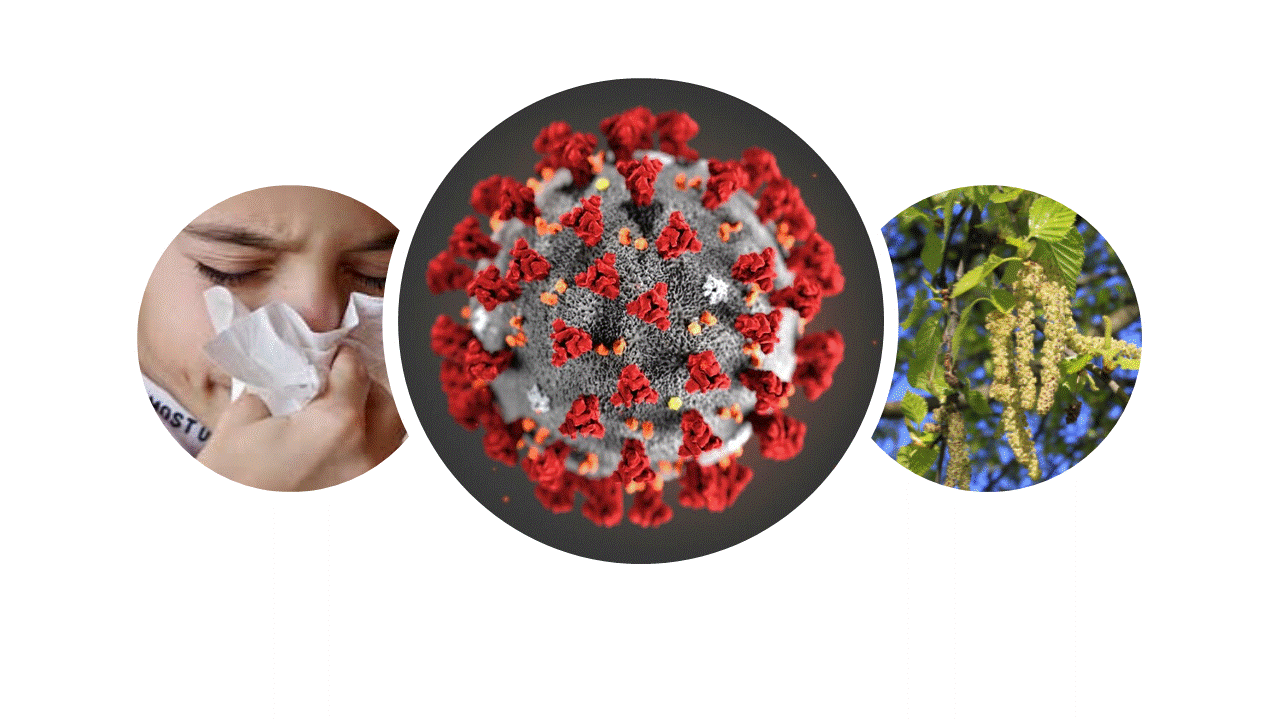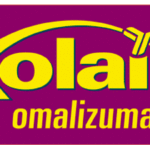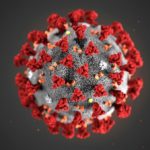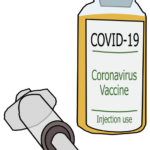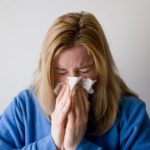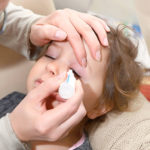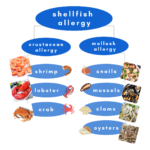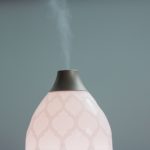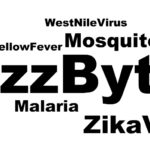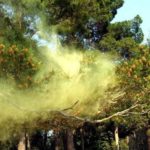Coronavirus, Common Cold or Allergies?
The recent outbreak of coronavirus has crossed paths with the start of the spring pollen allergy season and the end of “cold season.” Since there is overlap in symptoms, it is important to categorize and distinguish amongst these problems to benefit from the most appropriate care. The following chart lists common symptoms of each.
|
|
Symptoms |
Onset |
Typical Duration |
|
Colds |
Runny nose with yellow discharge Sneezing Weakness and fatigue |
Symptoms develop within 1-3 days of exposure to the cold virus |
5-10 days |
|
Allergies |
Congestion Runny nose with thin, watery discharge Sneezing Wheezing Coughing Itchy nose, throat, eyes, and ears (nose & chest secretions are not contagious) |
Symptoms begin almost immediately after exposure to specific allergen(s). If seasonal allergies, symptoms occur at the same time every year. If perennial allergies, symptoms are present year-round |
Symptoms last as long as you are exposed to the allergen. If that allergen is present year-round, symptoms may be chronic |
|
Coronavirus (with COVID-19) |
Fever Shortness of Breath Cough (nose & chest secretions are contagious) |
Symptoms develop up to two weeks after exposure to the virus. The virus is thought to spread mainly through close contact between people. |
Variable: days to weeks |
There is no curative treatment for these illnesses, but proper care can help relieve symptoms and reduce risk of developing complications. Speak to your healthcare professional about options for relief.
Allergies vs Coronavirus Symptoms
Seasonal allergies can result in a range of symptoms including congestion, runny nose (thin discharge), sneezing, wheezing, cough, and itchy nose, throat, and eyes. These symptoms are most common in Spring and Fall upon exposure to seasonal pollens, and should not be confused with coronavirus. If you have a fever as well, you are likely not experiencing allergies, and may have a viral infection. Many patients experience relief from allergic symptoms with antihistamines, decongestants, and nasal steroids. Reducing exposure to allergens can also be beneficial (for example, avoiding outdoor exposure during peak pollen times). To learn more about your allergies and effective treatments, schedule an in-person or telemedicine appointment with the allergy doctors at The Asthma Center.
Coronavirus (COVID-19): Symptoms and Reducing Risk
The current understanding of coronavirus infection is not complete, and the CDC is constantly updating their webpage with new recommendations. At this point, the virus is spread primarily from person to person. This can occur upon close contact (within 6 feet) or inhalation of mucous particles after someone infected with the virus sneezes or coughs. Coronavirus (COVID-19) can cause symptoms ranging from mild to severe. Symptoms include fever, cough, and shortness of breath. At this time, there is no vaccine or antiviral drug for treatment. People with COVID-19 should receive supportive care to relieve symptoms and protect vital organ function. Self-quarantine is also recommended to prevent spread of the virus to others.
CDC recommends the following to prevent spread of the virus and minimize risk:
• Avoid close contact with people who are sick
• Avoid touching your eyes, mouth, and nose
• Stay home if you are sick
• Wash your hands often with soap and water for at least 20 seconds, especially after bathroom use, before meals, and after nose blowing, coughing or sneezing. Use alcohol-based sanitizer if soap and water are unavailable.
• Disinfect household and workplace objects (cell phones, keyboards, door knobs, etc.) using regular cleaning spray or wipes • Cover your cough/sneeze with a tissue and then dispose of it in a closed container
• Follow CDC recommendations for facemask use:
o CDC does not recommend that healthy people wear a facemask to protect themselves from respiratory diseases, including COVID-19.
o Facemasks should be used by people with symptoms of COVID-19 to help prevent disease spread. Facemasks are also crucial for health workers and people who are providing care in close settings (at home or in a health care facility). This information on COVID-19 was adapted from the CDC website. For more information and updates, see the CDC webpage: https://www.cdc.gov/coronavirus/2019-ncov/index.html
Common Colds: Symptoms and Treatments
If you have a common cold, you may have a runny nose, with thin or thick and yellow mucous. You may also have a low-grade (less than 100 degrees) fever, sneezing, weakness and fatigue –symptoms you may be familiar with from having colds in the past. Symptoms may last 5-10 days. Treatment for the common cold may include decongestants, pain relievers, and cough suppressants. Since the common cold is a viral illness, antibiotics are not an effective treatment. Your Primary Care Physician should be consulted about effective treatment plans. Studies have shown that viral upper respiratory symptoms that last at least 7-10 days may be complicated by bacterial infections. In general, it is assumed that an acute bacterial sinus infection occurs if the upper respiratory symptoms have persisted beyond 10 days. Bacterial sinusitis is usually accompanied by thickened nasal drainage, nasal congestion, facial pressure (especially one-sided or focused in one particular sinus area), post nasal drip, decreased sense of smell, low-grade fever, cough, fatigue, dental pain and/or ear pressure. If bacterial sinusitis does not clear on its own, antibiotics may be prescribed.
It is important to note that antibiotics are not effective for the Common Cold or coronavirus. Overuse of antibiotics for viral illnesses can lead to development of antibiotic resistant “super germs”.
For further questions and to schedule an appointment, call The Asthma Center at 215-569-1111 (PA) or 856-316-0300 (NJ).
The information contained in this article is the sole property of The Asthma Center and may not be repurposed for other use without permission from The Asthma Center.
Recent
Popular

